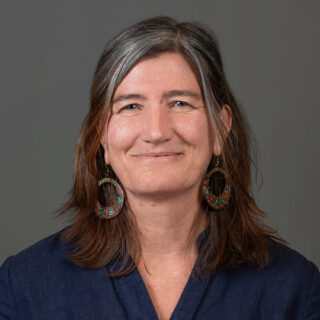Justices Ron Robie and Stacy Boulware Eurie are spearheading an effort to educate California’s judiciary about climate change and water issues. We asked them why they’ve taken on this task—and what they hope to accomplish.
You are leading the judiciary’s efforts to train judges and justices on water and climate. What does this entail, and why is it so important?
Justice Robie: I’ve taught classes on the California Environmental Quality Act (CEQA) for about 20 years. Water is a similar specialized area like CEQA, and more water cases are being assigned to larger courts. It seemed logical that using the CEQA model would be good for water.
Justice Boulware Eurie: There’s a significant increase in litigation that’s propelled not just by water law but also by climate change. Our broader judiciary hasn’t been called upon to preside over climate and water law much. Every judge swears an oath to be fair, impartial, and knowledgeable, but as more of our colleagues are getting these kinds of cases, we want to ensure the availability of top-notch critical education so that they feel competent to handle them. The science of climate change is evolving in ways that the law doesn’t necessarily keep up with.
Justice Robie: That’s right. The law stays the same, but the results will be different because of climate change. Climate change is changing how and when water arrives, and when snow arrives, for instance—and even if you’ve studied the last 100 years of water, that won’t help with what’s happening now. You have to be up to date with the current science.
How have judges and justices responded to the trainings?
Justice Boulware Eurie: The response has been resoundingly positive, both in the initial water law class—the first of its kind—and the environmental summit that we held. People who weren’t able to attend want to come next time.
Justice Robie: We’re reaching a lot of different types of judges. Because groundwater adjudications involve dozens of lawyers and parties, they are always going to be heard in complex litigation courts, and so complex litigation judges have an incentive to sign up for this kind of education. They’re even putting a groundwater component in the complex litigation court manual right now. A lot of classes are designed for trial judges, but this is an area where both trial and appellate courts have very significant interest in the issues. Water and climate cases always get appealed, so the appellate courts have to be prepared.
Justice Boulware Eurie: Justices who handle coordinated cases can also benefit from this training. You may have a case with 14 different actions that are independently filed in, say, eight different counties. The Judicial Council will coordinate them in one location. These are complex water cases coordinated in front of one judge. It’s designed to provide some judicial economy and efficiency statewide.
How do you expect this will aid the judiciary?
Justice Robie: Most judges know that climate change is real, but they don’t necessarily understand it. There is a significant component on litigation and climate change in our summit and in the water class. The relationship between the two is significant. That’s what’s really new.
Justice Boulware Eurie: Many people—judges and justices alike—hear “climate change” and it seems abstract: sea levels rising, atmospheric temperature going up two degrees. It isn’t detectable in our lifetimes. But when you have extreme heat, prolonged drought, or a wildfire that took out Paradise or Lahaina—judges are interested in the basic scientific methodologies and principles, because this is not an abstract concept.
Justice Robie: The need for experts is established now; you can’t just go into a case blind like you used to. We’re trying to equip judges with the ability to hire experts on their own so they have all the necessary input to do a good job.
Colorado has specialized water courts, organized by river basin. Would a similar system be desirable for California?
Justice Robie: The historic position of the judicial council for the last 25 years has been against specialized courts of all kinds, whether for business, the homeless, etc. Subject matter courts aren’t a good idea. Training judges in specific areas is a terrific idea, however, and they’re happy to do that.
And a lot of people don’t realize that Colorado’s water judges aren’t full-time water judges—they deal with criminal cases at the same time. In California, we don’t have enough cases to keep judges in many counties working full time on water. We just need them to have adequate education when they do get a water case to do a good job.
Justice Boulware Eurie: There is strength in connectivity and collaboration. As jurists we’ve sworn to be fair and impartial. We want to be sure we’re providing up-to-date, neutral, objective information. The ability to provide critical, objective, neutral education in a growing area is so important for our judiciary.
Topics
CEQA climate change courts groundwater Water, Land & AirLearn More

Unpacking the Supreme Court’s Recent Ruling on the “Chevron Doctrine”

Reforming Water Rights in California

Video: Managing Water in a Changing Climate



